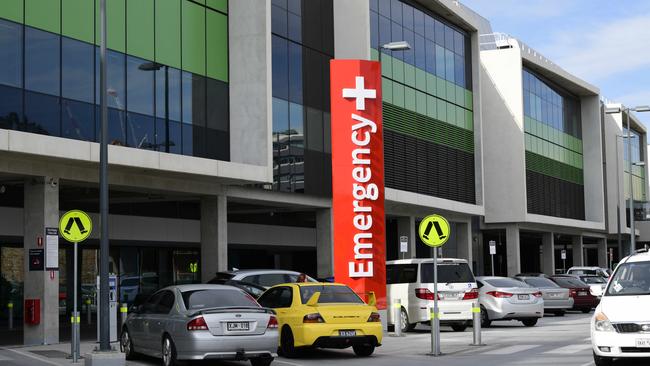New urgent mental health care centre to treat up to 5500 people a year planned for Adelaide
A new centre to treat mental health patients will be built in the CBD, aimed at treating up to 5500 people a year and help the city’s struggling hospitals.
SA News
Don't miss out on the headlines from SA News. Followed categories will be added to My News.
A new Urgent Mental Health Care Centre will treat many of the 5500 lower level mental health patients a year who now end up in clogged hospital emergency departments, sometimes stuck there for days because of a lack of appropriate facilities.
The new privately-operated centre – called the UMHCC – as the near the Royal Adelaide Hospital will be a pivotal step aimed at improving care for patients while reducing pressure on clogged EDs.
Tenders have been called to run the centre, which the government says will create dozens of jobs during construction, to create a treatment facility with a calm atmosphere instead of often noisy, brightly-lit EDs.
It will focus on the 5500 mental health patients triaged as urgent, less urgent or non-urgent, while the most acute cases will still be taken to hospitals.
Under the plan, suitable patients would be taken to the centre by ambulance, police and also if referred by telephone counsellors, with a view to expanding it to eventually take walk-in patients.

There were 15,600 mental health presentations to metropolitan EDs in 2017-18 – including 5500 with conditions – which could be treated in the planned new facility.
It will be funded through a $14 million capital and operating investment by the Federal Government and is one of eight adult mental health centres to be developed across the nation.
Following site selection and fit out, the new centre is expected to be operating later this year and will initially operate 12 hours a day, seven days a week.
Health Minister Stephen Wade said the centre would help deliver on a commitment to ease pressure on EDs and provide more appropriate support for mental health patients.
“We want to ensure the UMHCC provides access to care in a more therapeutic environment where consumers and carers feel welcome and can receive assessment, treatment, and support in a timely way, and are connected with appropriate services,” he said.
“The service is expected to link with existing community mental health services and non-government mental health crisis services that can provide follow-up care at home and in the community.
“While we have already increased mental health bed capacity at the Royal Adelaide Hospital and Lyell McEwin Hospital, the new centre is just one of a range of new targeted projects aimed to improve access and delivery of mental health services in South Australia.”
Opposition health spokesman Chris Picton welcomed the federal cash but said: “We will be examining the Minister’s security plans given the tender documents include potentially “acutely psychotic” or “potentially aggressive” attending the privatised clinic.
“We have seen increasing security risks on nurses and other health staff, and since the government is planning to send high-acuity patients, it needs to have proper security arrangements to protect staff and patients.”
The centre will work alongside other new programs such as the Mental Health Co-Responder program, which embeds mental health specialists in paramedic response vehicles and diverts them from EDs to more appropriate community services when suitable.
A statewide borderline personality disorder service also has opened, and the new mental health services plan has been released.
Chief Psychiatrist Dr John Brayley said establishing a UMHCC was a key priority outlined in the 2020-2015 mental health services plan.
“There is a particular focus in the plan towards community alternatives including new models, improved access to non-drug therapies and improved safety and quality of services,” Dr Brayley said.
“Based on successful best-practice models overseas, the design of the new UMHCC will include consultation rooms, and a ‘living room’ environment for people to sit in rather than hospital-style cubicles.
“There will also be mental health peer workers working alongside a clinical team including nursing staff, allied health staff, medical staff and psychiatrists.”
The tender process will identify a service provider who will co-design with consumers and carers the layout of the facility and the procedures that the service will follow.
The detailed planning will be in collaboration with consumers, carers, and practitioners, working with SA Ambulance Service, SA Police, local health networks, primary health networks, non-government providers, and other partners.

